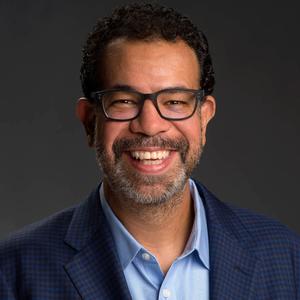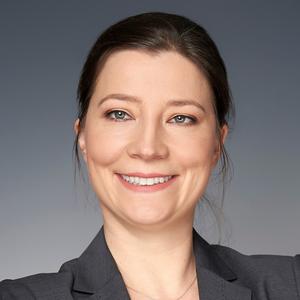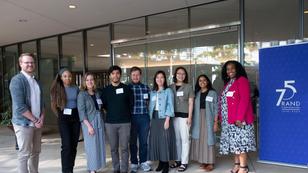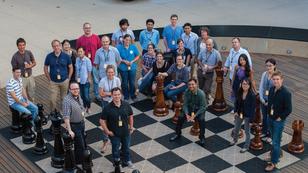Research and Analysis Jobs at RAND
Confront big problems with bold ideas. Help policymakers make decisions based on the evidence.
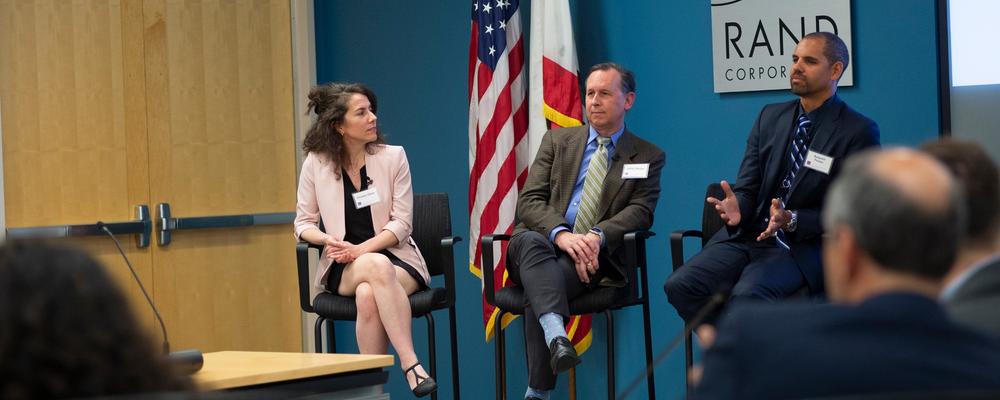
Christine Eibner, Jeffrey Wenger, and Benjamin Preston at the Social and Economic Policy Advisory Board meeting in April 2022
Photo by Diane Baldwin/RAND
RAND researchers are creative, independent thinkers. They're intellectually curious and passionate about making a difference in the world through public policy research.
Responsibilities vary across research and analysis roles, but they may include:
- defining policy problems and designing studies
- conducting qualitative and quantitative research
- writing and disseminating findings
- leading projects and creating teams
- teaching the next generation of policy experts at the RAND School of Public Policy
- mentoring new researchers, summer associates, and others
- talking to journalists or writing commentary
- delivering briefings to or testifying before Congress.
Global Research Talent
Global Research Talent, which manages our research staff, is committed to cultivating RAND's world-class intellectual capital and scientific community, and promoting a welcoming culture.
Disciplinary Research Departments
When researchers join RAND, they also join one of our research departments, which are organized into groups of disciplines.
Behavioral and Policy Sciences
Researchers in Behavioral and Policy Sciences tackle diverse policy questions, from military personnel issues to challenges confronting the health, education, and justice systems; physical infrastructure; and the environment. They come from disciplines such as psychology, medicine, public health, anthropology, criminology, education policy, law, sociology, and health policy.
Defense and Political Sciences
Researchers in Defense and Political Sciences tackle the full range of policy questions related to defense and intelligence strategy and planning, as well as civil justice and other research areas. They have backgrounds in the social sciences (mainly political science), public policy, security studies, history, and law. Many researchers in this department also have regional and language expertise.
Economics, Sociology, and Statistics
As its name suggests, Economics, Sociology, and Statistics is home to economists, sociologists, statisticians, as well as policy researchers, project associates, and others who conduct research on a wide range of topics. They have expertise in economics, sociology, statistics, cost analysis, and related fields.
Engineering and Applied Sciences
Engineering and Applied Sciences researchers use their technical and analytic skills to tackle problems across the full spectrum of national security and social policy areas at RAND. Their backgrounds span the STEM disciplines and include applied mathematics, physical sciences, information science, operations research, management science, and all types of engineering.
RAND Global Scholars Program
The RAND Global Scholars Program is a professional development opportunity that supports a select group of RAND policy experts in building the reach and networks needed to address critical global issues. Scholars focus on making their research-based insights actionable and accessible, while harnessing the power of collaboration to create pathways for innovative and effective solutions to pressing problems.
About RAND Researchers
There are about 1,225 researchers in RAND's staff of 2,025. More than half hold doctorates.
Doctorates by Discipline
Discipline by percentage of the total
- Policy analysis: 12%
- Social sciences: 12%
- Economics: 10%
- International relations: 9%
- Engineering: 8%
- Math, operations research, statistics: 7%
- Political sciences: 7%
- Behavioral sciences: 6%
- Computer sciences: 5%
- Life sciences: 5%
- Physical sciences: 5%
- Business and law: 4%
- Arts and letters: 2%
- Other: 8%
The Research Agenda
RAND is committed to addressing issues at the top of the policy agenda. Each research division sets general priorities, and researchers propose new projects and secure funding for new work within the scope of those priorities and RAND's broader mission.
RAND retains the rights to publish its research and owns the intellectual property of its research projects. Most of our reports are published to rand.org and are free to access.
See how RAND is fundedResearch Staff Roles
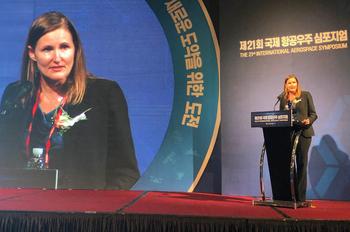
Sherrill Lingel speaks about technology and defense modernization
Photo courtesy of the Republic of Korea Air Force
Jobs for research staff encompass wide variations in disciplinary training and substantive expertise. But all jobs in this category emphasize fact-finding and problem-solving through the application of structured, objective methods of analysis.
These positions fall into two categories. One is for research leadership jobs that involve or lead to primary roles in generating, leading, and managing client-sponsored projects. The other category is for professional research support jobs.
Research Leadership Roles
- behavioral or social scientist
- economist
- engineer
- information scientist
- international policy or defense policy researcher
- management scientist
- mathematician
- operations researcher
- physical scientist
- physician policy researcher
- policy researcher
- political scientist
- statistician
Professional Research Support Roles
- defense analyst
- policy analyst
- quantitative analyst
- statistical analyst
- technical analyst
- research assistant

